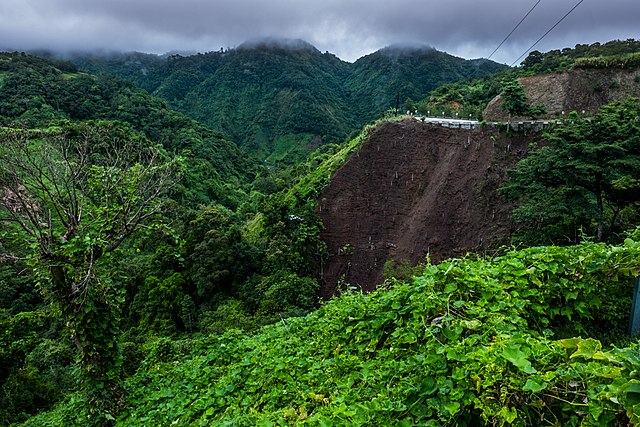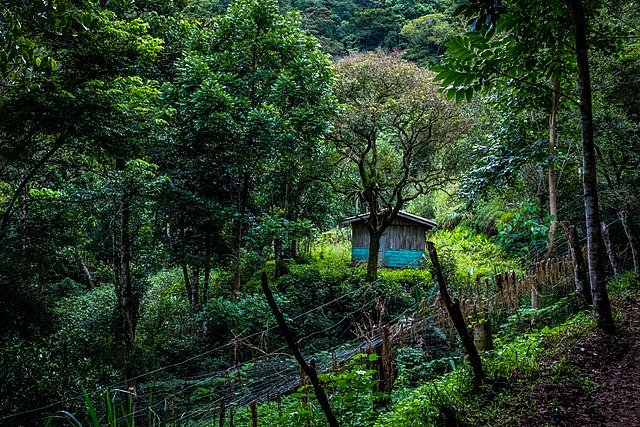
Through the generosity of the late Professor Benedict Anderson and Ajarn Charnvit Kasetsiri, the Thammasat University Library has newly acquired two important books of interest for students of Association of Southeast Asian Nations (ASEAN) culture and civilization. The books are by Charlson L. Ong, a novelist and short story writer who teaches literature and creative writing at the University of The Philippines’ Department of English and Comparative Literature.
As its website explains,
For over a century, the Department of English and Comparative Literature (DECL) of the University of the Philippines has been developing and teaching essential courses in English; producing groundbreaking scholarship in language and literature; and fostering writers to become among the best in the country. The DECL was established in 1910 as the Department of English, one of the units of the College of Liberal Arts… Today, among the DECL’s faculty are the leading creative writers and literary scholars of the country. As the first university English department in the Philippines and its current accreditation as a Center of Excellence in English and Literature, the DECL is indeed a premier department.
The books by Professor Ong are shelved in the Charnvit Kasetsiri Room on the U1 level of the Pridi Banomyong Library, Tha Prachan campus. They are Banyaga: a Song of War and Woman of Am-Kaw and other Stories.
Among the short stories in the latter collection are The Execution, A Tropical Winter’s Tale, Trouble in Beijing, Turtle Season, and How My Cousin Manuel Brought Home a Wife.
The TU Library also owns a number of books about ASEAN and Philippine literature.

Atmospheric writing
Professor Ong sometimes discusses his Chinese family background, since Chinese-Filipino culture is a prominent aspect of life in the Philippines. Chinese Filipinos are one of the most significant Chinese communities in Southeast Asia. There are over 1.3 million Filipinos with Chinese ancestry, or just over one percent of the population.
Professor Ong’s fiction gives a strong sense of place and setting, especially when describing San Juan City in Metro Manila, Philippines. Metropolitan Manila (often abbreviated as Metro Manila) is one of the three defined metropolitan areas of the Philippines. Metro Manila is a center of culture, economy, education and government for the Philippines. Termed a global power city, the region has energetic commercial, financial, artistic, fashion, research, technology, education, and entertainment activity.
In discussing Metro Manila, Professor Ong offers details about specific times of year, such as an essay published in 2017 about St. John the Baptist Day, a Christian water festival that is different from the Songkran Festival in Thailand, although water is also involved.
The City of San Juan Philippines in Metro Manila was named after St. John the Baptist who, according to the Christian Bible, baptized Jesus Christ with water. On June 24, the Feast Day of St. John the Baptist, people of San Juan, Manila celebrate this occasion by throwing water at each other. Professor Ong writes:
For sometime, I thought of the water festivity in our town as peculiar. I tended to agree with elders that, as is often the case, Filipinos had overdone things and transformed a Christian feast into a grotesque orgy. That is dispersal units.
But in Yunnan, China, I witnessed a similar festival among the Miao people. One day a year, members of this community throw water at each other in wet and wild abandon. The festival dates back to antiquity and minorities in Thailand, and other places in East Asia are supposed to have similar celebrations. It is quite possible then that like some other Philippine festivals and traditions, such as the fertility rites in Obando, Bulacan, communal dousing has pre-Christian origins.
In most religions, water is a sacred purifier. Hindus douse themselves in the Ganges, and Jesus was baptized in the Jordan by John. Being island denizens, playing with water was likely the most natural sport among our forebears. Whatever its origins, water throwing and dousing, done without malice, serves to mend strained relationships and to reaffirm community ties. Once a year we can be children again, shorn of our expensive clothes and civic airs, defined not by wealth or social standing, but by a most common, life-giving substance. It’s not too different from teammates splashing cold water or champagne on each other and on their coaches after winning a championship.

In 2013, a master’s thesis was accepted in the Department of Southeast Asian Studies at the University of California, Riverside, USA, The Enigma of the Stranger: The Chinese Filipino as Alien and Citizen was written by Gloria G. Gonzales. The master’s thesis focused on the writings of Professor Ong. As its abstract notes, it
examines notions of the “alien” and the “citizen” or the outsider and insider based on the Chinese Filipino experience as portrayed in Charlson Ong’s novel, Banyaga: The Song of War (2006). Although the Chinese have lived in the Philippine archipelago since the twelfth century, they have always been considered “banyaga” (alien or foreigner) by Filipino “natives.” I argue that the marginalization of the Chinese has led them to specialization in trade and commerce, which in turn has steered them, paradoxically, towards exceptionalism. As such, I correlate Ong’s “banyaga” with Georg Simmel’s concept of the stranger and argue that “strangeness” positions the Chinese to become the “triumphant capitalist” and “flexible citizen” personified by the Chinese tycoon in Banyaga. Historically, the Chinese in the Philippines have been at the margins of society. The socio-political alienation of the Chinese in Philippine society is not only due to their race and their legal designation as aliens during various colonial and postcolonial regimes but also from their historic role as trader, middleman, mercantilist, and capitalist. The fictive re-construction of the past in Banyaga exposes the limitations of legal and cultural citizenship premised on race, origins, nativity, territoriality, and monoculturalism. As a counterpoint to Banyaga, The Embarrassment of Riches (2000) is also examined in this paper. Embarrassment, which is a construction of the future based on the past, is a literary intervention that allows us to explore the multiple strands of national identity and the complex, even predatory, transnational processes that impact the nation-state due to increasing migration and global expansion of capitalism.
The abstract refers to the German sociologist and philosopher Georg Simmel. The TU Library owns some books by and about Georg Simmel.
Other works
In other writing, Professor Ong occasionally appears in The Philippine Star, an English language print and digital newspaper in the Philippines. The Philippine Star is among the Philippines’ most widely circulated newspapers. One such article is a tribute from 2002 to James Onglepho, who describes himself as a Filipino painter influenced by Chinese culture. Mr. Onglepho was born in Xiamen, China in 1931. His family moved to Manila at the end of the 1930s:
For more than 30 years, James painted lotuses. No other Filipino artist has displayed such fidelity to one subject matter as he did. To the artist, the lotus is more than just a flower, more than the subject of half a lifetime’s meditation. It is the quintessence of purity, the flower symbolizes all that is unsullied and noble in nature as in the human spirit. Onglepho’s long-running affair with the lotus could easily be rooted in his Chinese heritage, but their relationship is something deeper.

(All images courtesy of Wikimedia Commons)
